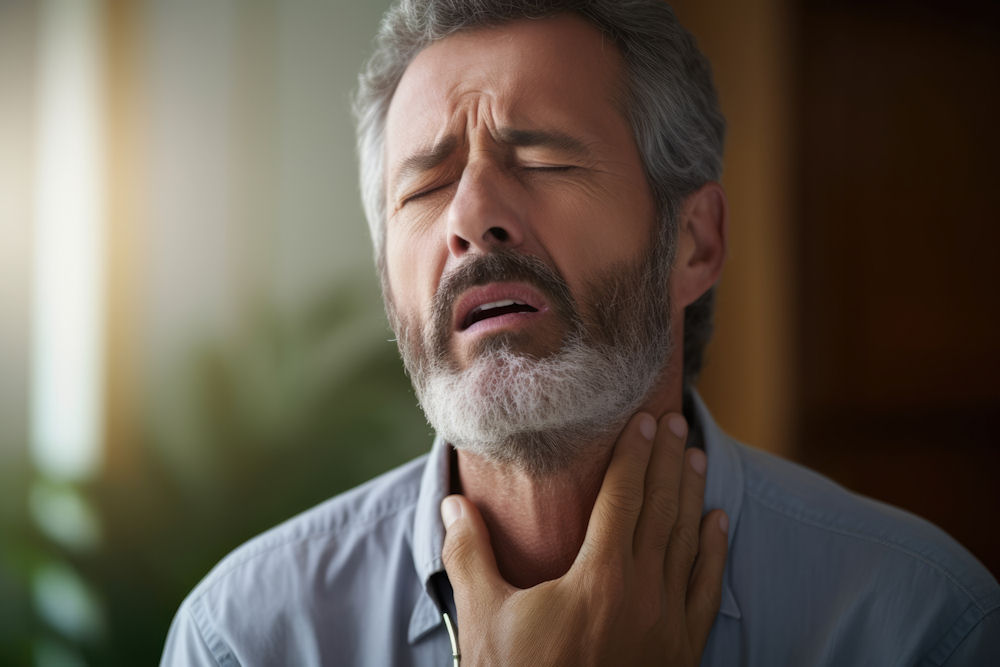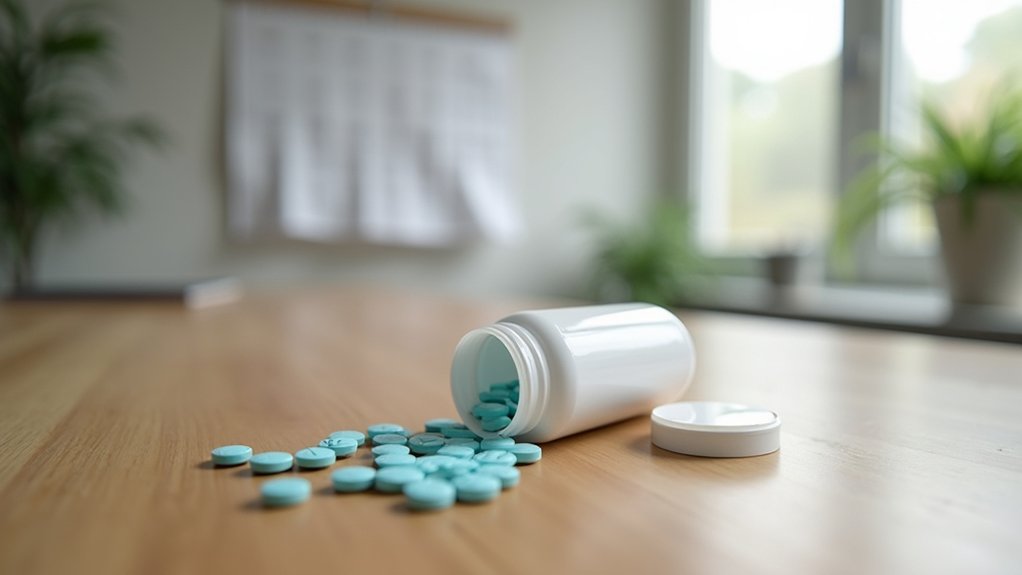How to Cope With Alcohol Withdrawal
You’ve decided to stop drinking, but now you are dealing with alcohol withdrawal and feeling awful. Don’t worry, you’re not walking this path alone. Many people struggle with quitting drinking and facing withdrawal symptoms, particularly individuals in the end stage of alcoholism. The good news is that your body begins to heal as soon as you stop consuming alcohol. While it may take some time, each day brings you closer to feeling better and regaining control of your life.
During this time, it’s essential to educate yourself about what to expect during alcohol withdrawal and how your body heals. Understanding the process can help you navigate through the challenges more effectively.
There are various proven tips and treatments available to ease withdrawal symptoms and prevent relapse. Seeking support from friends, family, or a support group can also be invaluable during this time.
Remember, with determination, self-care, and support, you can overcome alcohol withdrawal and build a healthier, alcohol-free future. Brighter days are indeed ahead, and you have the strength to reach them. Keep pushing forward, and know you can achieve your recovery goals at Immersive Recoovery’s men’s only rehab center in Encinitas, California.
What Happens to Your Brain and Body During Alcohol Withdrawal?
When an individual develops a physical dependence on drugs and alcohol, their body gradually adjusts to the presence of these substances in their system. However, suppose they suddenly cease drug use after a prolonged period. In that case, their body may experience severe illness and exhibit various withdrawal symptoms as they try to adapt to the sudden absence of the drug. For example, opioids such as heroin and painkillers affect a neurotransmitter in the brain called dopamine, which induces intense feelings of happiness and euphoria.
With prolonged opioid use, the brain ceases to produce dopamine naturally and becomes reliant on opioids to achieve these effects. Consequently, when individuals abruptly discontinue opioid use after developing an addiction, their brain produces lower levels of dopamine, resulting in symptoms such as anxiety and depression. The same happens when someone binge drinks alcohol over time. When someone abruptly stops drinking the brain and body become confused as they are used to a substance being consumed. When it’s not, the body has to compensate and react to alcohol not being used. As a result, mild to life-threatening symptoms and side effects occur.
Understanding Alcohol Withdrawal Symptoms
Alcohol withdrawal symptoms start within hours of your last drink as your body craves the alcohol it has become dependent on. Early symptoms like anxiety, nausea, and trouble sleeping usually begin within 6–12 hours. Over the next couple of days, you may experience more severe symptoms like high blood pressure, an irregular heartbeat, tremors, and even seizures in severe cases.
Anxiety and Irritability
Feeling on edge, worried, and easily upset is common. Deep breathing, meditation, or light exercise can help manage anxiety disorders and improve your mood.
Nausea and Vomiting
Your stomach will need time to adjust to functioning without alcohol. Stick to bland, easy-to-digest foods and stay hydrated with water or electrolyte drinks. Medications can also help reduce nausea.
Difficulty Sleeping
Insomnia and vivid nightmares are frequently reported. Establish a calming bedtime routine, limit screen time before bed, and ask your doctor about temporary sleep aids.
Tremors and Seizures
In the most severe cases, alcohol withdrawal can cause delirium tremens (“DTs”) with dangerous symptoms like seizures. Seek immediate medical help if you experience seizures, hallucinations, or delirium.
The severity of your symptoms depends on factors like how long and how much you were drinking. Most symptoms will resolve within 5 to 7 days, but cravings and recovery can take much longer. Talk to your doctor about treatment options and the next steps in your recovery. With the right coping strategies and support system in place, you can get through this difficult time and come out the other side healthy, happy, and sober.
Efficient Methods to Manage Alcohol Withdrawal Symptoms
Managing alcohol withdrawal efficiently is crucial to ensure the safety and well-being of individuals experiencing this challenging process. For those with mild-to-moderate cases, certain home strategies can be helpful. However, severe withdrawal symptoms necessitate medical supervision. Here are a few efficient methods for managing alcohol withdrawal symptoms:
1. Prepare Yourself Mentally
First, you need to prepare yourself for the difficult days ahead. Giving up alcohol can be tough, and the symptoms of withdrawal can be uncomfortable. Remind yourself why you want to stop drinking and how much better you’ll feel when you’re sober. Stay focused on your goal.
2. Ask for Support
3. Find Ways to Relax
Do light exercises like walking or yoga, read an inspiring book, take a warm bath, or get a massage. Practicing relaxation techniques can boost your mood and ease anxiety. Making healthy lifestyle changes will aid your recovery and help you maintain sobriety for life.
4. Stay Mindful of Triggers
Identify triggers that may prompt cravings or temptations to drink, such as certain places, people, or emotions. Develop strategies for managing these triggers effectively, such as avoiding trigger situations or implementing healthy coping mechanisms.
5. Stay Educated
Educate yourself about alcoholism, withdrawal symptoms, and the recovery process. Understanding what to expect can help you feel more prepared and empowered to navigate challenges.
You can do this – stay focused on your goal and reward yourself for the progress and milestones achieved along the way. The benefits of quitting alcohol will be well worth the effort. Keep going!
Medical Detox Can Help Manage Alcohol Withdrawal Symptoms
Medical detox, also known as detox, is vital for overcoming drug or alcohol addiction. It’s supervised withdrawal from substances under medical care. It’s crucial for those dependent on substances to avoid severe and life-threatening withdrawal symptoms.
According to the National Institute on Drug Abuse (NIDA), the duration of withdrawal symptoms can range from days to weeks, depending on the specific type of withdrawal experienced. Although the withdrawal process may seem daunting, undergoing drug and alcohol detoxification can assist in safely withdrawing from substances with a reduced likelihood of complications. Symptoms such as dehydration, elevated blood pressure, and seizures can all pose life-threatening risks and lead to fatality when withdrawal occurs outside of a controlled medical environment.
Unfortunately, certain types of drug or alcohol withdrawal can be equally as hazardous as the actual substance abuse itself. The detox process enables individuals to overcome drug dependency while receiving medical care and supervision, often incorporating the use of medications to alleviate and diminish symptoms. Certified addiction specialists and drug and alcohol rehabilitation programs specialize in aiding individuals in safely and effectively withdrawing from various substances, among many others.
Individuals who are addicted to these substances can minimize their risk of overdose or seizure-induced death by seeking professional drug detoxification at a reputable drug or alcohol rehabilitation center.
Medically Supervised Detox
In a medical detox program, healthcare professionals and staff supervise you around the clock throughout the withdrawal phase. They can administer medications as needed to alleviate severe withdrawal symptoms, like seizures, delirium tremens (DTs), and psychosis. Medications such as benzodiazepines are commonly used to reduce anxiety, agitation, and seizures.
A Safe and Comfortable Environment
A medical detox setting also offers a supportive and comfortable environment throughout your detoxification process. You stay in a private or semi-private room and have access to healthy meals, counseling, and alternative therapies like yoga or massage that can help reduce stress. The team is available to provide support and aid in managing cravings or mood fluctuations.
Post-Detox Planning
Before your discharge from detox, your treatment team will collaborate with you to create a comprehensive aftercare strategy. This may include:
- Outpatient treatment such as therapy, support groups, or medication management.
- Transitional housing is where you can stay sober while reintegrating into everyday life.
- A relapse prevention plan focuses on lifestyle changes and coping strategies to help you stay committed to your recovery.
The journey to overcoming alcohol addiction is challenging but rewarding. Medical detox is often the first step, providing you with a stable start to your recovery surrounded by professional support. Starting here puts you in the best position to succeed and build the foundation for a healthy, fulfilling life without alcohol.
Creating A Relapse Prevention Plan
Creating a relapse prevention plan is an essential part of maintaining sobriety and avoiding setbacks in recovery from alcohol or substance use disorder. To craft a relapse prevention plan, you’ll need to:
- Identify triggers: Recognize what leads to cravings or temptations.
- Coping strategies: Develop healthy ways to deal with triggers.
- Support Network: Surround yourself with supportive people.
- Therapy/counseling: Seek professional help.
- Healthy lifestyle: Focus on exercise, nutrition, and sleep.
- Daily routine: Stay busy with meaningful activities.
- Avoid high-risk situations: Steer clear of triggers.
- Emergency plans: Prepare for potential relapse scenarios.
- Mindfulness: Stay aware of thoughts and feelings.
- Celebrate progress: Acknowledge and reward achievements.
Remember that relapse is a common part of the recovery process for many individuals, but it doesn’t mean failure. If a relapse occurs, it’s essential to seek support, reassess your relapse prevention plan, and continue moving forward with renewed determination and resilience.
Immersive Recovery Can Help

Embarking on the journey to recovery from alcohol addiction can be daunting, but you don’t have to face it alone. Immersive Recovery is here to provide you with the support, treatment resources, and guidance you need to overcome alcohol withdrawal and build a fulfilling, sober life.
Whether you’re considering medical detox, seeking a relapse prevention plan, or simply looking for a supportive community to lean on, Immersive Recovery is your partner in this journey. Our compassionate team is dedicated to helping you navigate through the challenges of alcohol withdrawal and empowering you to reclaim control of your health and well-being. Contact us today!





